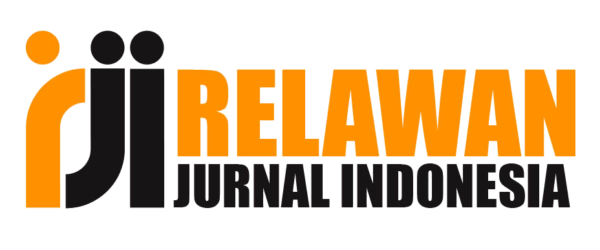EFEKTIVITAS ASESMEN KINERJA UNTUK MENINGKATKAN DISPOSISI BERPIKIR KRITIS FISIKA SISWA SMA
Abstract
ABSTRAK
Banyak penelitian belakangan ini mengkaji tentang keterampilan berpikir kritis, namun masih sedikit yang mengetahui tentang kecenderungan (disposisi) siswa untuk menggunakan keterampilan tersebut. Disposisi berpikir kritis merupakan satu bentuk kecenderungan seseorang untuk kritis dalam memecahkan masalah atau mengambil keputusan. Penelitian ini bertujuan untuk menentukan efektivitas asesmen kinerja untuk meningkatkan disposisi berpikir kritis Fisika. Subjek penelitian ini sebanyak 32 siswa kelas XI IPA di salah satu Sekolah Menengah Atas di Sumatera Barat, Indonesia. Desain penelitian yang digunakan yaitu one group pretest-posttest design. Data dikumpulkan melalui tes esai dan kuisioner DBK. Hasil penelitian ini adalah asesmen kinerja efektif meningkatkan disposisi berpikir kritis Fisika siswa sebesar 71.88 % dengan kriteria sedang.
Kata Kunci: Efektivitas; Asesmen Kinerja; Disposisi Berpikir Kritis
Abstract
While a great deal of research has examined students’ critical thinking skills, less is known about students’ tendencies to use these skills. Critical thinking disposition is a form of a person's tendency to be critical in solving problems or making decisions. The aim of this study is to determine the effectivity of performance assessment to improve student’s critical thinking dispisition. The subject of this research is 32 students of XI IPA class in one of high school in West Sumatra, Indonesia. The research design is one group pretest-posttest design. Data were collected through essay tests and DBK questionnaires. The result of this research is performance assessment effective improve student’s critical thinking disposition equal to 71.88% with medium criterion.
Keywords: Effectivity; performance assessment; student’s critical thinking disposition
Full Text:
PDF (Bahasa Indonesia)References
Costa, A and Kallick, B (2000). Habits of Mind: A Developmental Series.Alexandria, VA: Association for Supervision and Curriculum Development.
Yamin, M. (2009). Strategi Pembelajaran Berbasis Kompetensi. Jakarta: Gaung Persada (GP) Press.
Tishman, S. (1994). Thinking dispositions and intellectual character. Annual meetings of the American Educational Research Association. New Orleans, LA.
Ennis RH (1996). Critical Thinking Dispositions: Their Nature and Assessability. Informal Logic Vol. 18, Nos. 2 & 3 (1996):165-182.
Facione, P. A., Facione, N. C., & Giancarlo, C. A. (1997). The motivation to think in working and learning. In E. A. Jones (Ed.), Preparing competent college graduates: Setting new and higher expectations for student learning—New directions for higher education (Vol. 96, pp. 67-79). San Francisco: Jossey-Bass.
Facione, P.A., Giancarlo, C.A., Facione, N.C. & Ganien, J. (1995). The Disposition Toward Critical Thinking. Journal of General Education, 44 (1): 1-25.
Connie, SL. (2006). Approaches to Evaluate Critical Thinking Dispositions. APERA Conference 2006: 28 – 30 November 2006 Hong Kong.
Stiggins, R. J. (1994). Student Centered Classroom Assessment. New York: maxwell Macmillan International Simon & Schuster Company
Popham, W. J. (1995). Classroom assessment: What teachers need to know. Needham Heights, MA: Allyn and Bacon.
Marzano., R.J., Pickering, D., & McTighe, J. (1993). Assessing student outcomes: Performance assessment using the Dimensions of Learning Model. Alexandria, VA: ASCD
Costa, A and Kallick, B (2000). Habits of Mind: A Developmental Series.Alexandria, VA: Association for Supervision and Curriculum Development.
Wulan, A.R. (--). Skenario Baru bagi Implementasi Asesmen Kinerja pada Pembelajaran Sains di Indonesia. [Online]. Tersedia: http://file.upi.edu/Direktori/SPS/PRODI.PENDIDIKAN_IPA/197404171999032-ANA_RATNAWULAN/reformasi_asesmen_kinerja.pdf. (diunduh 24 Oktober 2017).
Shepard, L.A. (2008). Commentary on the National Mathematics Advisory Panel recommendations on assessment, Educational Researcher, 37(9), 602-609.
Darling-Haminton, H. L., & Adamson, F. (2010). Beyond basic skills: The role of performance assessment in achieving 21st century standards of learning. Stanford, CA: Stanford University, Stanford Center for Opportunity Policy in Education.
Ennis RH (1996). Critical Thinking Dispositions: Their Nature and Assessability. Informal Logic Vol. 18, Nos. 2 & 3 (1996):165-182.
Facione, P.A., Giancarlo, C.A., Facione, N.C. & Ganien, J. (1995). The Disposition Toward Critical Thinking. Journal of General Education, 44 (1): 1-25.
Suhandi, A., F. C. Wibowo, F. C. (2012). Pendekatan Multirepresentasi dalam Pembelajaran Usaha-Energi dan Dampaknya Terhadap Pemahaman Konsep Mahasiswa. Jurnal pendidikan Fisika Indonesia 8 (1), 1-7.
Joughin, G (2010). The Hidden Curriculum revisited: a Critical Review of Research into the Influence of Summative assessment on Learning. Assessment and Evaluation in Higher Education, 2010: 35(3), p.335-345.
Omidi, M. (2012). Effectiveness of Assessment Patterns in Chemistry Learning. Life Science Journal 2012;9(3)
Brown, A. (2005). A Self Assessment of Writing in Independent Language Learning Program: The Value of annotated samples. Assessment Writing. 2005;174-179.
Lingtan, A. & Towndrow, P. Catalyzing Student-Teacher Interactions and Teacher Learning in Science Practical Formative Assessment with Digital Video Technology. Teaching and Teacher Education. 2009;25,61-65.
Doane, W.E.J., Rice, R., and Zachos, P. (2006). Knowing When You Don’t Know. The Science Teacher. 2006;73(4): 46-49.
DOI: https://doi.org/10.17509/wapfi.v3i1.10946
Refbacks
- There are currently no refbacks.
Copyright (c) 2018 Wahana Pendidikan Fisika
The Journal Wahana Pendidikan Fisika http://ejournal.upi.edu/index.php/WapFi/ is licensed under a Creative Commons Attribution-ShareAlike 4.0 International License
The Journal WaPFi (Wahana Pendidikan Fisika).
All rights reserverd. pISSN 2338-1027 eISSN 2685-4414
Copyright © Faculty of Mathematics and Science Education (FPMIPA) Universitas Pendidikan Indonesia (UPI)









